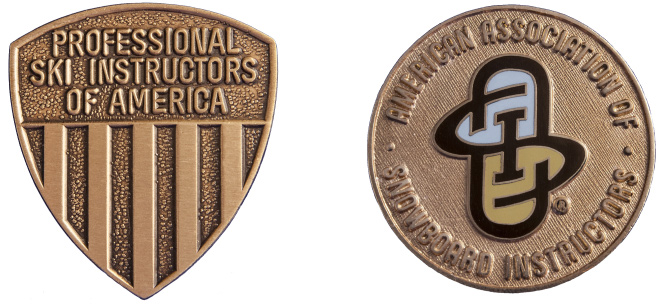In this seventh installment of the “Certification Secrets” series, former PSIA Cross Country Team Coach and Cross Country Task Force member Scott McGee emphasizes why even starting down the path to certification can create more success – and fun – in your teaching journey.
Q: Why would you recommend to other professional instructors that they aspire to gain advanced certification or specialist credentials?
A: PSIA-AASI offers really great intro courses, including any of our discipline Level Is and other accreditations. These form a foundation upon which we can build much more sophisticated, thoughtful, and effective ways of tailoring our instruction to our students’ needs, abilities, and desires. Taking the next step, beyond LI, opens doors to greater levels of competence and mastery with teaching concepts and ski or ride technique.
Q: How would you set up a strategy for members to achieve advanced certification or specialist credentials this season?
A: For newcomers to snowsports instruction, I always say, “Get as certified as you can as fast as you can.” This pursuit of professional development can help secure higher pay, more favorable assignments, and better tips, all of which serve to make snowsports instruction as a career more viable and sustainable.
As for strategy, click on the Event Calendar and add all of the clinics you’re thinking you can afford and have time for. When you start to talk schedule with your supervisor to plan for winter, make these dates part of the initial conversation. This step serves a few purposes:
- It steels your own resolve to follow through on the steps leading to completion, new learning, and advanced levels of certification.
- It highlights to your supervisor that you’re serious about training, learning, and growing in this profession, which is a springboard to asking for specific dates off – which is often much more difficult as an afterthought – and can be an implied or formal ask of support in the form of in-house trainings and ad hoc pick-up clinics that help prepare you for advanced education and assessments.
- It also opens doors to collaborative learning by helping you wrangle some peers to join you on the learning journey, which can make it more fun and enriching, save you some money with carpooling or lodging for travel events, and give you a built-in support system.
Q: What are some of the key resources – both personal and professional – you would recommend?
A: Events like Spring Fling/Spring Clinic or Slide into Winter can be great ways to engage with new disciplines and continuing education without the pressure of preparing for an exam, and can be very healthy learning experiences that start with genuine curiosity and an open mind.
Q: What are some of the key takeaways from your own certification/specialist story – both good and bad – and what did you learn from them?
A: I didn’t start out with a growth mindset (read Mindset: The New Psychology of Success by Carol Dweck), but when I adopted it, pursuit of my Alpine Level III got a lot more fun and educational. I didn’t take feedback personally. I recognized that after not passing the feedback changed during each attempt. I came to look at the assessment as more like checking the temperature than a measure of me as a person.
Q: What’s the one thing you know now that you wish you knew when you started on this journey?
A: Dig In! Many careers require that you get most or all of your education done before you can really start. Snowsports instruction allows you to take a new job and build skills as you pursue education and certification.
***
Read the other “Certification Secrets” Q&As: Stowe Mountain instructor and staff trainer Mark Aiken, Mount Snow Ski Instructor Christine Holden, PSIA Alpine Team member Joshua Fogg; Mount Snow Ski & Ride School Senior Manager Maureen Drummey; 2021 Education Excellence Award Recipient Stacey Gerrish; and PSIA-AASI Eastern Examiner Bonnie Kolber.

